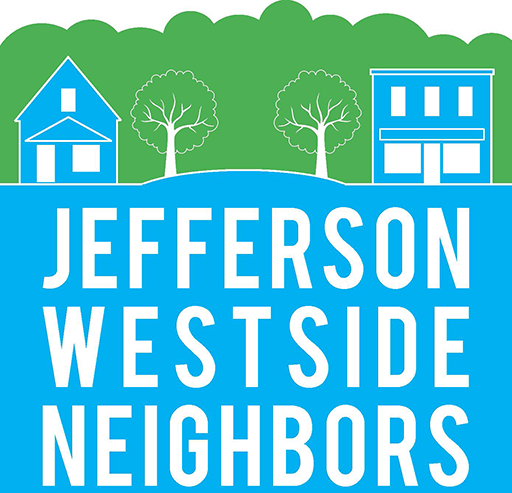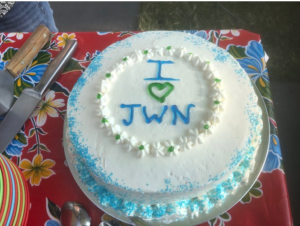 On this page you will finds information on general public safety issues from broken sidewalks to unsanctioned camping to crime, what to do and how, and whom to contact. “The squeaky wheel get the grease” so the more report, the better the chance of getting some action.
On this page you will finds information on general public safety issues from broken sidewalks to unsanctioned camping to crime, what to do and how, and whom to contact. “The squeaky wheel get the grease” so the more report, the better the chance of getting some action.
And the bottom is our Tips on Urban Living Series as seen in our monthly eNews (what? not getting our eNews? Subscribe here!).
When in Doubt – Report!
In General
Report any and all suspicious activities and crime in the neighborhood, such as vandalism against vehicles, homes, and business and petty theft, or people checking to see if cars or doors are locked, to the proper authorities. Reporting problems provides a baseline for measuring improvement (or lack of improvement) and assigning resources.
Even calls that do not draw a timely response generate data and data drives resources as well as providing leverage for the JWN to advocate for more resources or policy changes.
You also can use the EPD Web-based reporting system for some issues such as suspicious activities, theft, and vandalism. Several cars have been keyed near Monroe Park and several cars had their windows broken near Chambers.
It’s a Crime we have to Discuss this…
Petty theft and vandalism has been an issue in the JWN but is not something we must accept and endure.
Obviously, we can take steps to protect our property and we have highlighted them in our ongoing Tips for Urban Living Series Below). The basics are:
- Lock your car, even behind a fence.
- Keep bikes under lock and key. Photograph, note serial #s, and register your bike at bikeindex.org or Project 529.
- Keep you front door locked, even if you are home.
- Secure yard access points.
- Lock out buildings
- Light your front porch/yard (see this month’s Tips for Urban Living below)
If you do see suspicious activity or are a victim, report it! Reporting creates data and data drives how public safety resources get spent! Eugene’s online citizen police report system allows you to submit a report immediately for the following incidents:
- Vandalism / Criminal Mischief
- Theft
- Graffiti
- Hit and Run
- Anonymous Drug Tip Line
- Anonymous Crime or Suspicious Activity Tip Line
Use it! If the crime is currently in progress or involves other incident types, please call the non-emergency line (541) 682-5111.
Supply-Side Crime Prevention
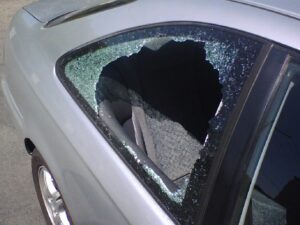
Property crime is on the rise, but you can reduce your chances of being victimized by not encouraging thieves.
Don’t be part of the problem by providing the raw materials that allow crime to thrive.
Most theft is opportunistic and thieves are experts at “reading” your car, bike, and home to see if you are a good prospect.
Vehicles: Of course, every JWN resident knows to NEVER leave a vehicle unlocked, even in your driveway or behind a gate. But just as important is not to leave ANYTHING visible in your vehicle. Even a phone charger hanging out of your USB port signals to a thief you are the type of person who leaves items in your car.
Home: Do yourself a favor by not doing a burglar favor–don’t leave out or have accessible tools in an unsecured shed. A thief may not take a hammer with them, but will happily use yours to break your window to let themselves in.
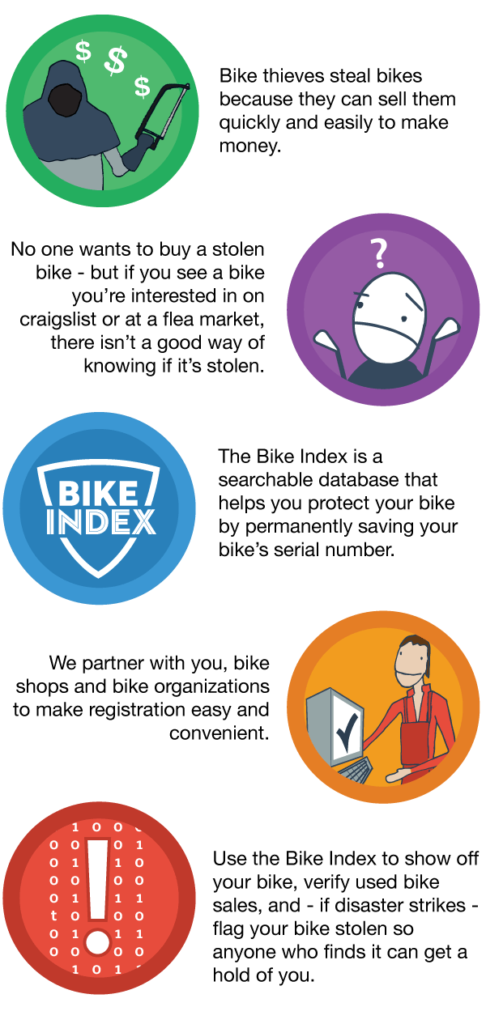
Bikes: One reason why Eugene has a bike theft problem is that there are so many easily stolen bikes.
- First, unless you can store your bike in a locked/secure space where only your family has access, lock it to a stationary object.
- Second, EPD used to do it, but now you need to use a free private service like eindex.org or Project 529.
- Third, if your bike is stolen, report it immediately! Even if the police catch someone with a dozen bikes, they can do nothing unless they can prove the bikes are stolen.
- Finally, consider using bike share. Plan on being someplace for a long time, especially after dark (like the movies)? Leave your own ride at home, grab your helmet, and take bike share. Cheaper than a new bike and less stressful.
EPD Home Vacation Check Program
FREE! How Awesome is That?
Seniors on Patrol, trained volunteers from the Eugene Police Department, will perform a thorough inspection of your property while you are away on vacation.
Vacation checks entail a visual check of your home and outbuildings and ensuring that vehicles, gates, lighting and the general security of the home are intact and in accordance with the request.
Whenever a vacation check reveals something suspicious, volunteers are trained to back out of the immediate area and request a patrol officer be dispatched to investigate further.
Vacation checks will be performed, as staffing allows, with the goal of checking the home 2 to 3 times each week that you are gone or 1 time a week for vacations longer than 30 days.
Upon your return, you will receive a letter detailing the dates/times that your home was checked along with any notations made by the volunteers.
Get a free EPD Home Security Inspection
The Eugene Police Department offers free Home Security Inspections to Eugene residents. During the inspection, a Crime Prevention Specialist will come to your home and offer suggestions to improve security.
EPD’s Crime Prevention Specialists are assigned by areas or “beats” of the city. Please contact the Crime Prevention Specialist assigned to your “beat” to request this service @ My “Beat” – My Crime Prevention Specialist.
Trespass Letter of Consent
A Trespass Letter of Consent (TLC) is a specifically worded, legal document that allows a police officer to take enforcement action on your behalf without contacting you first. For further information, visit the TLC webpage.
THIS PROGRAM HAS BEEN DISCONTINUED FOR RESIDENTIAL PROPERTY AS OF FEBRUARY 2021
This from the city of Eugene:
We are making some major changes to our Trespass Letter of Consent (TLC) program. The most major change is that our trespass letters will now only last for two years. The second major change is that we are restricting participation in the program to Commercial/Business properties only (not individual residential dwellings). This is actually going back to the how that program was when it was originally created. Because this is primarily a residential property I will be pulling the letter for your location.
A trespass letter is not required for you to trespass someone from your property. It is only required that you (or your tenant) tell the person to leave the property or not to come onto the property – and they fail to do that. And it is required that you (or your tenant) be the complainant by calling EPD dispatch about the incident.
The changes in the program policy to make the trespass letters only last for two years and to only allow business/commercial properties in the program was proposed by me and approved by Lt Mason (and I assume her superiors). The two year limit was established to try to clean up the database and ensure the information in the files was accurate (we found people were not contacting us with updates and changes to their information). The change to limit participation to business/commercial properties was actually going back to how the program was when it was initially designed. Private residential properties were never the focus of the program and unfortunately over time many of these were allowed to sign up. Now that we are attempting to make contact with every person with a file in our database so they can update their letters, we thought it a good time to clean the residential files out of the system.
The decision was made based on the fact that the program was initially created to deal with trespassing on business/commercial property. It was started so that an officer could drive by a location when it is closed and if they saw someone on the property and there was a trespass letter on file and “No Trespassing” signs were posted they could stop and remove the person or take legal action in relation to the trespassing laws without needing to have any contact with the property owner or the responsible for the property. The letter gave officers the ability to “act as the owner’s agent”, and the letter and signage identified that no one was allowed on the property when it is closed.
In the case of a private residence there was never a requirement to have a trespass letter on file in order to trespass someone from your property. And police response to a trespassing incident at a private residence will always be complaint driven. We cannot know who is allowed on the property. Someone (owner, tenant, neighbor) will have to contact dispatch to report an incident, and during the investigation we will have to ultimately confirm that the “trespasser” is not allowed on the property. Now if there is something other than trespassing (something like suspicious activity, someone actively breaking into the house/vehicle, or someone causing damage to the property) then we can respond to the location and enter onto the property to investigate that without first contacting the owner/responsible.
There is nothing stopping you from having a neighbor call in a trespassing (or other incidents) but we will still likely need to contact you to confirm that the person is not allowed to be there. Also, the officer will need to ensure the elements of Criminal Trespass are being met (the person needs to know that they cannot enter onto or remain on the property – and even after being advised of this they still come onto the property or fail to leave). An easy way to fulfill this requirement is by posting “No Trespassing” signs.
Ordering Online, May Be Convenient in a Bad Way…
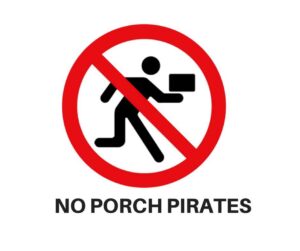 Stolen packages are a costly and aggravating part of home delivery. Luckily, thieves are largely lazy and opportunistic, so out-of-sight will usually be enough.
Stolen packages are a costly and aggravating part of home delivery. Luckily, thieves are largely lazy and opportunistic, so out-of-sight will usually be enough.
Here are some easy steps you can take to minimize the chances of a wayward package.
- Direct delivery drivers to place the package behind a fence or gate. Packages are, well, packaged for shipping. You can put down an open box for a softer or cleaner landing.
- Direct the package to work or a neighbor who is usually home.
- Box bench: Build or buy a bench for the front door or nearby that opens like a box. If you are especially concerned, have an unlocked lock that the driver can then lock when he leaves.
- For expensive or hard to replace items, make sure they need a signature for delivery. Sometimes a pain, but less so than having them stolen!
Dog Doos and Don’ts: How to be a Good Dog (owning neighbor).
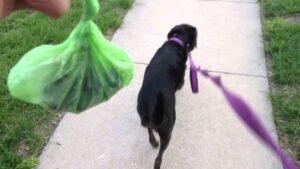
Who’s a good neighbor? Who’s a good neighbor?
Pick-up Poop! Regardless of where you are, it is never okay to simply leave your dog’s poop (no matter how out-of-the-way). As dog owners, it is our responsibility to pick up and depose of our dogs’ waste. This involves being prepared (better one too many bags than one too few) and paying attention to what your dog is doo-ing. Purpose designed poop bags are the best and easiest to carry and use and inexpensive. Bottom line: Pick up after your dog!
Control your Dog. This means either leash your pet or have it under voice command (come when called). No person or other dog should be forced to interact with your dog. It is not my dog’s responsibility to play with your dog. Some people do not like dogs, fear them, or simply may not want to interact with your dog at that moment. Similarly, some dogs do not want to play with other dogs all the time or at all. Do not let your pet approach a dog or person without checking in with the owner first, just like you should never approach a dog without permission.
Respect Landscaping. When out walking your dog, do not let it wander into planting beds and shrubs. This can cause damage to plants. The JWN is dog friendly, let’s keep it that way!
Wrong? Way! Parking the wrong way is dangerous and can earn you a $100 ticket
- Keep Sidewalks safe. Damaged or hazardous sidewalks make life hard for the mobility challenged. Homeowners are responsible for sidewalk upkeep and liable for any injuries.
- Do not block sidewalks with vehicles. It is illegal and hazardous for those with limited mobility or other disabilities as well as people with strollers.
- Do not drive into street entrances that are marked restricted for bicycle access only. It is illegal and creates a hazard for cyclists, pedestrians, and others who are not expecting traffic from that direction. Think if it as going the wrong way on a one-way street.
- Do not drive over the top of traffic diverters. Besides being illegal, it damages curbs, and creates a hazard for cyclists, pedestrians, and others who are not expecting traffic from that direction. You are basically going the wrong way on a one-way street.
iBikeEUG App Lets Cyclists Report Bike Lane/Path Problems
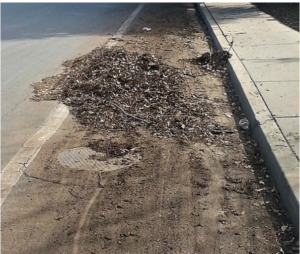 Want to report debris and other hazards along your favorite cycling route? The iBikeEUG app uses the GPS location function on mobile devices to pinpoint reported issues. The application allows you to include a name, phone number, and email, if you want a response or additional information. You also can include a photograph to add detail when reporting an issue.
Want to report debris and other hazards along your favorite cycling route? The iBikeEUG app uses the GPS location function on mobile devices to pinpoint reported issues. The application allows you to include a name, phone number, and email, if you want a response or additional information. You also can include a photograph to add detail when reporting an issue.
The new mobile application is in addition to several other current web-based citizen request forms that tie into the maintenance management system, including reporting potholes, requesting leaf deliveries, and being notified when street sweeping is scheduled in a particular area.
Busted? Adjacent Property Owners are Responsible!
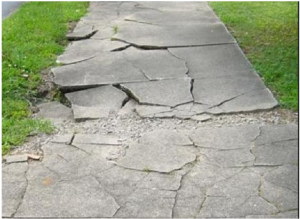 While it is annoying that a homeowner is responsible for a city owned sidewalk even it is damaged by a city owned tree, that’s the law.
While it is annoying that a homeowner is responsible for a city owned sidewalk even it is damaged by a city owned tree, that’s the law.
Damaged sidewalks are especially hazardous to the elderly, mobility challenged, and sight impaired. In the JWN, many trees, few street lights, and dark winter nights mean anyone is at risk.
If someone falls and gets hurt on a damaged sidewalk in front of your home you are liable!
According to Matt Morrison, Sidewalk Inspector and Repair Coordinator, the city charges 50% less than most contractors – $700 for first square (5 feet), $250 per square thereafter. The city takes a cooperative approach and can work with homeowners. With a small crew of 3-5, it generally takes 5-6 months to get damaged sidewalks fixed except in extreme circumstances. The sidewalk inspector also can suggest options for patches. November-April is a good window to get repairs done.
If you observe hazardous sidewalks or want your own repaired, call 541-682-4800 or submit an online Sidewalk Inspection Request.
Eugene City Code 7.375
Sidewalks, Curbs and Access Connections – Owner’s Responsibility to Maintain: The owner of land abutting a sidewalk shall maintain the sidewalk and curb in good repair and safe condition. Access connection(s) shall be maintained in good repair and safe condition by the owner of land served by the access connection(s). The owner shall be liable for injury, damage or loss to person or property caused by the owner’s negligent failure to comply with subsection (1) of this section.
Parking or Curb Strips are Effectively Private Property
Parking strips (between the sidewalk and the street) are often owned by the city, but are controlled by, and the responsibility of, the proximate property owner/occupant. This includes for trespassing, so you can exclude people from your parking strip and no, the urban myth that anything in a parking strip is “free” for the taking is just that, a myth. Just like everywhere else, it is theft.
Maintenance or Service Requests for Public Works
For camping (see below). Public works will respond for issues with city owned land or infrastructure or for illegal dumping or graffiti among other issues – use their website reporting system. You can also contact them at 541-682-4800 or email.
Person in Distress
If you witness problematic behavior or see someone in obvious distress, especially if it involves apparent drug and/or mental health issues, call 541-682-5111 (EPD non-emergency number) and they will dispatch CAHOOTS. Make sure the number is in your phone. Get the person in distress the help they need and make public space safe for everyone.
Parks
If there are problematic activities or other issues in any city park (including camping), file a report via Park Watch. Bookmark the Park Watch page.
Unsanctioned Camping
Homelessness is a serious and widespread problem for both the housed and unhoused. Please join the JWN is advocating for a more serious and comprehensive response by city and county government.
Simply put, unmanaged public camping is unsafe, unsanitary, and a blight that endangers economic and social stability. It is not a viable solution as it doesn’t work for anyone. We can only meet the needs of all residents if the city and county provide sanctioned camping locations with sanitation and security for all those who want it and take a hard line and enforce the ban on public camping for those who do not. We must separate the larger homeless population, to protect them and housed residents, from criminal vagrants and to make Eugene less hospitable to this element. There are acres of empty parking lots where people could go right now – a solution Ward 1 Councilor Semple has advocated for years – and open commercial land. We have the best equipped and experienced service providers in the US. What we lack is the leadership and political will to act, but we must, there is no other solution.
Use the new one-stop city website for reporting unsanctioned camping
The city has realigned its response to illegal camping by removing EPD from all noncriminal activity cases. Taking the police out of responding to all illegal camping complaints saves significant resources. Previously, 50% of all EPD service calls involved illegal camping complaints.
- Car Camping – Soft Approach: Most people who live in vehicles move often, so it is useful to wait until, the second night to see of people simply move on their own. Still, it can be disconcerting to have someone living in a vehicle on your street. In almost every case, vehicle dweller want to avoid conflict. Depending on your comfort level, you can either ask or leave a note stating simply “Please do not camp here.” Really, it work almost every time.
- Car Camping: Visit Report a Car Camping or Parking Problem to file an online report. Select the applicable item (e.g., stored for over 72 hours or parked in a yellow zone) then scroll down and select “Other Suspected Parking Violation.” A dialog box will open in which you can add details, such as “there is someone living in the vehicle.” A good rule of thumb is to wait until the vehicle has not moved for 72 hours and then report it for that violation and camping. A parking officer will respond within 24-48 hours. They will document the vehicle location and provide some alternative options for parking. The parking enforcement officer will return 72 hours after the first visit. If the vehicle has not become compliant, a citation will be issued and notice for impound posted. After another 72 hours the officer will return and if the vehicle still is not compliant, the vehicle will be impounded.
- Camping in Parks: Make a report online through Park Watch. Eugene’s park ambassadors seek voluntary compliance from campers and give them a 24-hour notice to vacate the site. When parks staff return to clean up the site and maintain the surrounding park or natural area, if there is any personal property or belongings left behind, they will leave a notice with information on how to retrieve those items within 30 days at no charge.
- Along Street and Public (non-parks) Property: Call the Eugene Police Department’s non-emergency line at 541-682-5111 or the Eugene Public Works Department at 541-682-4800 or use their website reporting system. City staff evaluate sites for safety and environmental hazards. If hazards exist, a 24-hour notice to vacate the site for maintenance is posted. Staff also share information about social services. After the site is vacated, City of Eugene Public Works Maintenance cleans the site.
- Private Property by Owner: You can report trespassing on your property by calling the Eugene Police Department’s non-emergency at 541-682-5111 or by calling 911 if it is an emergency. You also can post no trespassing signs on your property and file a Trespass Letter of Consent with the Eugene Police Department. IMPORTANT: City code now extends trespass control onto planted parking/curb strips (between the sidewalk and street) to the adjacent homeowner.
- Private Property Non-Owner: File a nuisance complaint through the City’s Code Compliance program.
EWEB’s Water Quality Report: Consistently Outstanding
Great city, great water! EWEB is proud to say it has never violated a maximum contaminant level or any other water quality standard established by the U.S. Environmental Protection Agency!
Recent climate change research in the Pacific Northwest shows that with higher temperatures, earlier snow melt, and longer, drier summers, the McKenzie Watershed and surrounding areas will experience more abundant cyanobacteria harmful algal blooms (cyanoHABs) that will start earlier in the spring and last longer into the fall.
EWEB works hard protecting the McKenzie River for current and future generations, and has been proactive in addressing threats, including cyanoHABs. Learn more in the annual Water Quality Report.
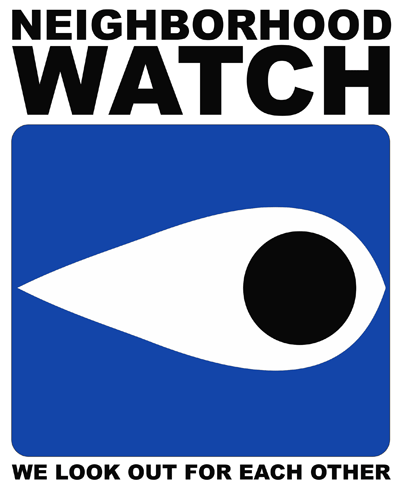 Yearly surveys to neighbors asking for your priorities for the board to work on. Almost immediately we saw that public safety is a top concern for neighbors. Safety comes in many shapes and sizes but here is some of what we have heard and done.
Yearly surveys to neighbors asking for your priorities for the board to work on. Almost immediately we saw that public safety is a top concern for neighbors. Safety comes in many shapes and sizes but here is some of what we have heard and done.
If anyone is interested in the program and wants to get a group going, Paul can help. Just contact Paul via email: paul.k.bishop@ci.eugene.or.us
Tips for Urban Living Series
Make sure you are signed up for our monthly eNews to new editions, a new TFUL every month (since 2018)!
2021
Tips on Urban Living Series: Special Sub-Series – Tools you didn’t know you needed #5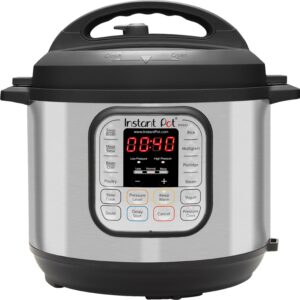
Instant Pot (pressure cooker): $50+ (look for sales). Multiple brands in many sizes. Pro-tip: go big (you can put less in more, but you can’t put more in less…)
Just because you CAN cook it on a stove top does not mean you SHOULD. Perfect beans, no soaking, no burning, in 30 minutes. Soups and stocks are easy. If you are into canning, a pressure cooker is a must – we can a lot of fruits, salsa, and soups and the Instant Pot saves time and frees up the stove top.. Worth the investment and easy to use.
Tips on Urban Living Series: Special Sub-Series – Tools you didn’t know you needed #4
Silicon Baking Mats: $15+ for a set
We hope you have graduated from yard sale/hand-me-down cookie sheets to experience the joy of new, modern cookie sheets. Silicon baking mats keeps those cookie sheets pristine, with no spray oil needed to avoid sticking and easy to clean. No muss, no fuss, and no sticking.
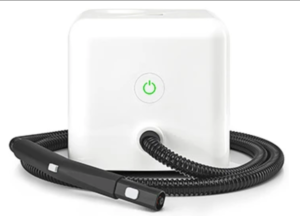 Tips on Urban Living Series: Special Sub-Series – Tools you didn’t know you needed #3
Tips on Urban Living Series: Special Sub-Series – Tools you didn’t know you needed #3
Home Steam Cleaner (Dupray NEAT in photo)
Cost: $150+ (includes lots of accessories)
For far less than the cost of a decent vacuum, you get what I consider the best device for home cleaning I have ever owned. A tank steam cleaners like this blows steam at 275 degrees that kills germs and viruses on contact. Awesome for toilet seats and kitchen counter tops. No chemicals and runs on tap water, it leaves no residue. Kills bed bugs, melts grease, cleans grout, and makes surfaces pop. If you want clean and are trying to avoid chemicals, this is the tool for you.
Tips on Urban Living Series: Special Sub-Series – Tools you didn’t know you needed #2
Air Compressor
Cost: $65+ (less for a used one)
A friend of mine gave me his old air compressor and I was like, “thanks?” I figured it was great for pumping up tires and such (it is – you won’t miss your hand bike pump), but little did I realize how useful an air compressor can be.
If you use any pneumatic tools (e.g. nail gun) you already own one. But the main thing I use my air compressor for (besides tires) is cleaning things that you can’t or do not want to use water on. Cleaning screens, fans, bag-less vacuums, or anything with cracks or crevices that are hard to get at is a breeze and a big time saver. IMPORTANT: Use outside, with eye protection, a mask, and hoodie up – the compressor blows things everywhere.
Tips on Urban Living Series: Special Sub-Series – Tools you didn’t know you needed #1
Flexible grabbing tool
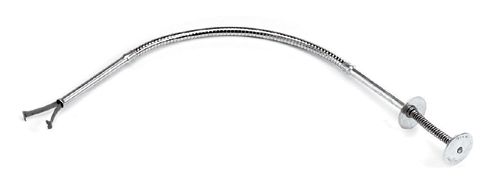
Cost: $5+
I got a 24 inch Flexible grabbing tool from a friend who worked at True Value Hardware. At first, I thought it was an odd gift, but quickly realized how much time, frustration, and busted knuckles it saved me. From reaching behind furniture or drawers, down drains, or inside of dryers to get lint, this is one of those tools that you do not always need, but really need when you need it. They come in a variety of lengths and some are equipped with magnets or even cameras.
Tips on Urban Living Series #30: Get on a City of Eugene list
You can get the inside track on what’s going on in your neighborhood by reading the JWN eNews (so far so good). To stay even more informed about what’s going on in your city, you can sign up for news, information, and calendar/event lists produced by the city of Eugene, including budget updates, planning, parks information, human rights, and the lists go on.
There is not an app for that (yet) but there is a webpage: https://www.eugene-or.gov/list.aspx
Tips on Urban Living Series #29: Know Your Neighbors!
Can’t remember that neighbor’s name and too embarrassed to ask? Want to know if a house is a rental and who is the landlord – there’s an App for that!
Go to https://lcmaps.lanecounty.org/LaneCountyMaps/ZoneAndPlanMapsApp/index.html
- Type in your address
- Click on a parcel (select arrow in upper right corner). That provides the owner information. If the owner is not the occupant (a rental), a different address will show up.
- If you select the Easy Property Information Lookup link it will take you to the full property record.
2020
Tips on Urban Living Series #28: Removing the Opportunities for Crimes of Opportunity.
Data shared with the JWN by EPD indicates neighborhood burglaries and crimes are highly opportunistic. Here are some tips from our EPD Community Engagement Specialists.
Avoid these crime vectors like the plague:
-Garage door left open
-Garage pedestrian door left unlocked
-unlocked shed
-items left in car
Criminals know due to COVID (and now the fires) people are home more. So they are not breaking into actual houses as much. But they are still criminals and will continue to steal. So they are looking for things that are quick and easy. If they find that they are successful in a neighborhood they will continue to return to a neighborhood.
So, we need to work together to make sure garages are not left open. If you see a neighbor has left their garage open let them know. Make sure you are securing and locking all windows, doors, and sheds. Do not leave ANYTHING in your cars.
Additionally. Don’t put recycle bins with refundable items out the night before. This will draw transient behavior during the night and early morning hours to your neighborhood looking for those items. Wait until the morning of or return those items to locations such as the “Bottle Drop.”
It is critical to report any and all crime to the non-emergency number or the Citizens Online Police Reporting System. EPD is a statistic run agency and if they are not getting the calls, they cannot properly assess where and what crimes are occurring. It has to go through the non-emergency number (541) 682-5111 or the COPRS.
Tips on Urban Living Series #27: Up Lights and other Low-Key Safety Lighting
 Many of us enjoy the minimal street lighting in many parts of the JWN, but lighting in yards can be a deterrent to thieves and vandals. No need to light your home like a prison yard, you can provide security and minimize the impacts on wildlife and neighbors with low cost decorative lighting. Rope lights are a fun option for front porches and yards that provide just enough light. String lights are also festive. Up lights in your front or back yard look fantastic.
Many of us enjoy the minimal street lighting in many parts of the JWN, but lighting in yards can be a deterrent to thieves and vandals. No need to light your home like a prison yard, you can provide security and minimize the impacts on wildlife and neighbors with low cost decorative lighting. Rope lights are a fun option for front porches and yards that provide just enough light. String lights are also festive. Up lights in your front or back yard look fantastic.
All these options can be installed relatively cheaply and some have solar-only options. Light timers are also inexpensive. Light on!
Tips on Urban Living Series #26: Tool Share
While you can also rent tools from the Tool Box Project, it is possible that one tool you need is sitting in a neighbor’s garage or shed. Many urban yards are small and buying yard care tools like mowers does not make much sense and the seldom-used tools take up space. If you have or need a tool, ask around. It is great way to meet your neighbors. Many of us have items like pressure washers, cordless drills, painter or pruner poles, and so forth we use only a few times a year.
Tips on Urban Living Series #25: Paint your Own Curb #s!
The complaints pile in on rude curb number painters – they do not ask permission, are very aggressive if confronted, paint over your numbers (even custom colored), do a crap-tastic job, and they try and extort money for it (sigh).
Since there is little to be done about this practice, make it a community building opportunity! Rustoleum Flat Protective Enamel spray paint works for curbs. How-to guide here: https://curbnumberpro.com/paint-curb-numbers-on-sidewalk/ . Stencil kits are cheap or if you are arty, freestyle it! If you get together with neighbors you can share the cost and make it into a fun neighborhood project. My neighbor added some art work of her own.
*looking to have your yellow curbs refreshed? The city will do it for free, go to Public Works website reporting system and file a request (yes, they will actually do it). Late winter or early spring are the best times. Pro-tip: for best results clean and scrape off any chipped or peeling paint, they do not always do it.
Tips on Urban Living Series #24: Be a Data Diva
We hear it all the time – “I stopped calling the Eugene Police because I never get a response.” What everyone needs to know is that calls generate data and data drives enforcement resources. So, even if EPD doesn’t show up, calling ultimately will help by showing them where they need to focus resources.
Remember: if you see something that makes you wonder if you should call the non-emergency number (541-682-5111) then CALL. Even if you think someone else has “probably” called. The more calls the better! You can also the EPD Web-based reporting system for some issues.
Tips on Urban Living Series #23: “Strippers!”
Parking strips (between the sidewalk and the street) are often owned by the city, but are controlled by, and the responsibility of, the property owner/occupant. This includes for trespassing, so you can exclude people from your parking strip and no, the urban myth that anything in a parking strip is “free” for the taking is just that, a myth.
Your front yard is mostly for your neighbors, so be neighborly and spend some of that stay-at-home time fixing up your weedy parking strip. Landscaped parking strips not only add a lot of beauty and character to your street and home, it signals your street/home is cared for and people are paying attention. Curb-side trees and landscaping can reduce vehicle speeds and unwanted activities as well screening parked cars and absorbing noise and road dust.
Did you now you can get a city approved tree for your parking strip (guaranteed not to buckle your sidewalk) or front yard from Friends of Trees? Prices are super affordable and fixed income discount rates are available.
Tips on Urban Living Series #22: Pandemic Edition
Use it or lose it – Support Local Business!
The economic fallout from the stay-at-home order is going to be severe for both businesses and workers. Most businesses can survive between 2-4 weeks with cash flow. We all love our JWN businesses and appreciate that we have a neighborhood where we can walk or ride our bikes to them. Do your part to make sure these local businesses and the jobs they provide survive.
First, order some take out: Here is a list of local take-out/delivery restaurants
Second, buy online from LOCAL business, treat yourself to some local arts and crafts. Check out these Saturday Market Vendors.
Finally, visit your favorite neighborhood business online and buy a gift card (or two or three).
Tips on Urban Living Series #21: Special Drought Edition
Eugene is at about 50% of normal rainfall, so that puts us in a drought. Water is a limited resource and while Oregon traditionally has plenty, we need to get into better water-use habits now as climate change impacts our weather.
Keep in mind, all water delivered is potable, so has been processed for human consumption, which also takes energy. 100 gallons of water takes about 1.1 kWh of power to process (it takes about a 1000 cu ft of natural gas to generate that much power). For context, the average home uses 28.9 kWh per day.
For big fixes, go to EWEB’s water conservation page. For small fixes, luckily, we California transplants know drought! So here are basic, easy, and cheap pro-tips on in-home water conservation. Gallons of water add up fast and these techniques become good habits quickly and reduce carbon production.
Saving Water in the Sink
Fill a household watering can as you wait for the water to get hot. The water can be used to rinse out the sink in the bathroom (very efficient) or used for watering plants. Transfer unused water to a bucket. This saves a gallon plus each time.
Saving Water in the Shower/Tub
Keep a bucket in the shower/tub and fill while you wait for the water to get hot. Use the water to flush the toilet (take lid off the tank, flush, and fill the tank back up from the bucket until the float turns the water off). An easy pour bucket is a must here. I recommend you buy one for just inside use. This saves a gallon plus each time.
Toilet Flushing
One of the easiest, but conceptually hardest, water saving tips is not to flush the toilet each time you use it. It does involve keeping the lid down as the default position. A modern toilet uses 1.5 gallon per flush. Axiom: “If it’s yellow be mellow, if it’s brown, flush it down.”
The Math
The average person uses 80-100 gallons each day (minimum of 2400 gallons per month). Two watering cans, a shower bucket, and four less toiler flushes can save about 10 gallons a day or 300 gallons per month or about 12%!
Tips on Urban Living Series #20: Self-Defense
The obvious reason to take a self-defense class or study a martial art is for, well, self-defense. Everyone, especially those of small stature, should be competent at self-defense. However, there are other and more useful benefits:
Self-confidence: Learning to defend yourself provides a sense of autonomy and self-confidence.
Attitude: Predators are lazy and having an air of self-confidence is a deterrent in and of itself.
Awareness: Any study of the defensive arts engenders a broader sense of awareness that helps you avoid unsafe situations.
Physical Conditioning: The better shape you are in, the better you will be able to meet or avoid any threats.
There are many places in Eugene to study martial arts and/or self-defense, so chances are you can find one that meets your needs and temperament.
Tips on Urban Living Series #19: Glass Break Detector
These devices can be a good alternative to an alarm system or as an add-on to an existing system. The inexpensive models can be a great solution to protect sheds and garages with windows.
There are two options. The most inexpensive models attach to a glass pane and can be purchased in packs of 2 to 6 for under $30. The other option has a working radius of several to 25 feet ($40+), so placing one in the middle of a room with multiple windows will usually be sufficient to detect shattering glass in the room.
Most glass break sensors function by using an audio microphone that recognizes the frequency of broken glass. If the right frequency is detected, the alarm sounds.
2019
Tips on Urban Living Series #18: USPS Informed Delivery
Digitally preview your mail and manage your packages scheduled to arrive soon! Informed Delivery allows you to view grayscale images of the exterior, address side of letter-sized mail pieces and track packages in one convenient location. Sign-up is free.
Tips on Urban Living Series #17: Chalking Tires
Is that car abandoned or stored on the street? Often it is hard to tell how long a vehicle has been parked, as it may simply be gone when you are not around. An easy method to see if a vehicle is abandoned or stored on the street is to make a small chalk mark on a curb side tire. Never mark the street side tires as that is where Parking Control marks.Then just check back the next day to see if it has moved.
As always, it is best to check in with neighbors first over any parking concerns.
Vehicles may be parked in the same spot for 72 hours before they are considered stored. Report parking violations via the city’s interactive website.
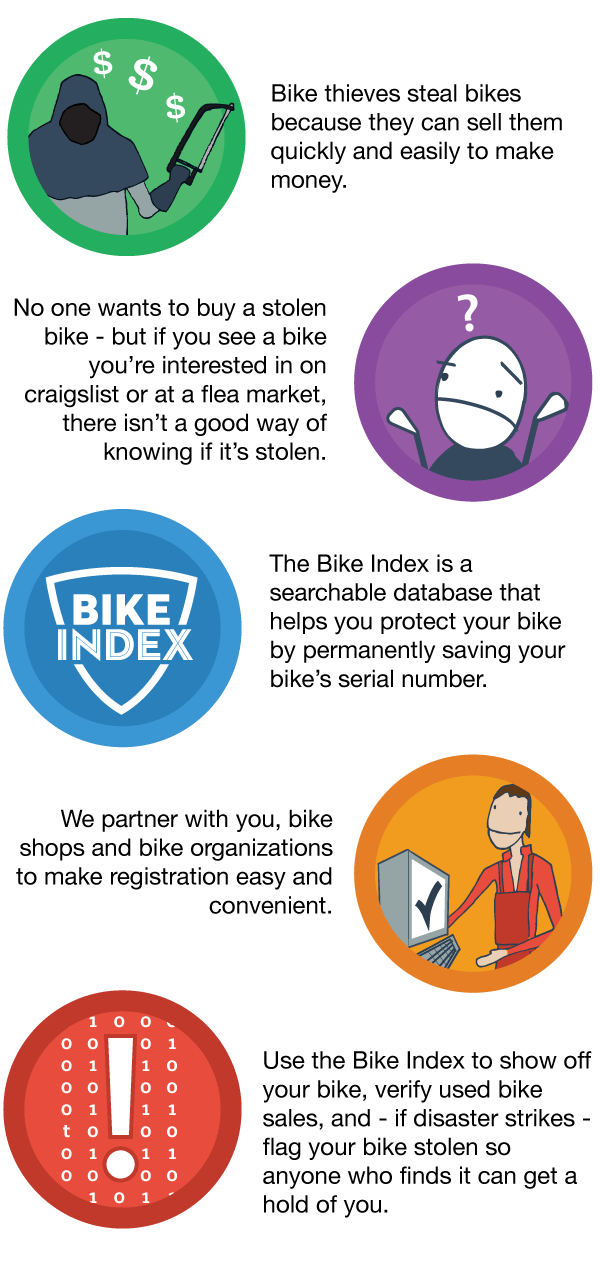
Tips on Urban Living Series #16: Index your Ride
Bike thieves thrive here because cyclists give thieves plenty of opportunities by not registering or securing their bikes. Don’t feed the problem!
First, if you haven’t done so, license your bike. That works great in the city of Eugene, but out in Lane County or beyond, that city bike license is not much good. So take the second step and register your ride with Bike Index, explained here.
Tips on Urban Living Series #15: Bike Share for Commuters and Day Trippers
The old joke that a great part about living in Eugene is that you get a new bike every three years, whether you want to or not, is sad but true.
Bike theft is a major problem, not to mention having mounted gear stolen. However, if you commute by bike or simply take trips that will leave your bike parked outside for long periods (movies, concerts, etc.), especially after dark, there is an alternative.
A neighbor turned me on to using Peace Health Bike Share instead of your own wheels. Just download the app and take your helmet! You can leave bikes anywhere and they do not cost you anything once you lock and leave them. Baskets and lights are built right in!
The cost is minimal and nothing compared to replacing parts or a whole bike, not to mention the stress and aggravation.
For details and pricing, visit Peace Health Rides.
Tips on Urban Living Series #14: Get a free EPD Home Security Inspection
The Eugene Police Department offers free Home Security Inspections to Eugene residents. During the inspection, a Crime Prevention Specialist will come to your home and offer suggestions to improve security.
EPD’s Crime Prevention Specialists are assigned by areas or “beats” of the city. Please contact the Crime Prevention Specialist assigned to your “beat” to request this service @ My “Beat” – My Crime Prevention Specialist.
Tips on Urban Living Series #13: Street Parking Etiquette
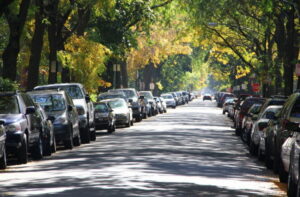
Few things cause more conflicts with neighbors than parking. In Jefferson Westside, many older homes have no off-street parking. In addition, quite a few rentals serve multiple tenants and there is not enough off-street parking to go around. Add to that trailers, boats,, and garages converted to living space or just full of, well, let’s say “stuff.” Parking problems can lead to parking control zones, which cost everyone money.
While we don’t “own” the street parking spots in front of our homes, you can avoid conflicts with “mindful parking.”
- Pull forward: park to maximize the available space.
- Park where you live: if the space is available, use your own frontage.
- Respect the 72 hour rule: Don’t store your vehicles or trailers on the street.
Ideally, any issue should be worked out with neighbors. But if there are persistent problems with vehicles stored on the street, blocked access, or other violations, you can File a report online with the city – parking enforcement typically responds quickly.
Tips on Urban Living Series #11: A lock is only as good as the door/gate it’s attached to…
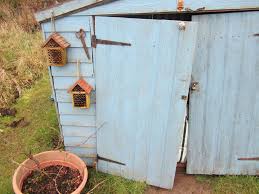 We often store a variety of items, some valuable, in our outbuildings and, often, these sheds or garages are old or of somewhat “marginal” construction. It does little good to lock a shed door if it is in poor condition or not firmly attached . Make sure the hinges are sturdy and securely anchored with wood screws into the door frame, the wood is in good condition around the hinges and where the lock is set, and the door frame that the lock is secured to is solid.
We often store a variety of items, some valuable, in our outbuildings and, often, these sheds or garages are old or of somewhat “marginal” construction. It does little good to lock a shed door if it is in poor condition or not firmly attached . Make sure the hinges are sturdy and securely anchored with wood screws into the door frame, the wood is in good condition around the hinges and where the lock is set, and the door frame that the lock is secured to is solid.
Tips on Urban Living Series #10: EPD Home Vacation Check Program
FREE! How Awesome is That?
Seniors on Patrol, trained volunteers from the Eugene Police Department, will perform a thorough inspection of your property while you are away on vacation.
Vacation checks entail a visual check of your home and outbuildings and ensuring that vehicles, gates, lighting and the general security of the home are intact and in accordance with the request.
Whenever a vacation check reveals something suspicious, volunteers are trained to back out of the immediate area and request a patrol officer be dispatched to investigate further.
Vacation checks will be performed, as staffing allows, with the goal of checking the home 2 to 3 times each week that you are gone or 1 time a week for vacations longer than 30 days.
Upon your return, you will receive a letter detailing the dates/times that your home was checked along with any notations made by the volunteers.
Tips on Urban Living Series #9: Manage your “View-Shed”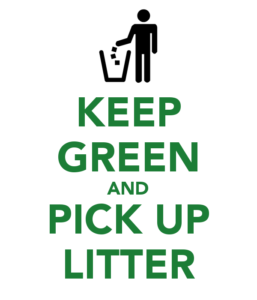
No one likes litter and trash provides implicit “permission” to others to contribute to it. Litter is a way for people to privatize public space – take that space back!
Litter, especially plastics, winds up in our rivers and oceans, and hurts animals and the environment.
Your view-shed is what you can see from your front door. Trash is annoying and ugly, but you can help yourself, your neighbors, the environment, and the neighborhood by managing your view-shed and picking up litter on your sidewalk, parking strip, curb, and street.
Tips on Urban Living Series #8: Shovel your Walk!
or Snow-body knows the trouble we’ve seen…
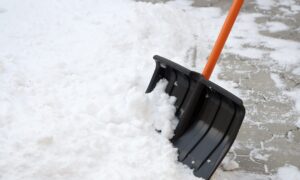 Come on, sure the massive snowfall was a “surprise” in a specific sense but its not like we never get snow. A snow shovel is one of those items you don’t often need but when you need it, well, you need it. Bonus is you can use it for leaves and woodchips!
Come on, sure the massive snowfall was a “surprise” in a specific sense but its not like we never get snow. A snow shovel is one of those items you don’t often need but when you need it, well, you need it. Bonus is you can use it for leaves and woodchips!
As those from snowier climes know, it is the homeowner’s responsibility to shovel your sidewalk. If you can’t handle it physically, talk with a neighbor. Snow turns to ice and it really can be a tough and hazardous slog, especially for the mobility challenged.
Tips on Urban Living Series #7: Ordering Online, May Be Convenient in a Bad Way…
 Stolen packages are a costly and aggravating part of home delivery. Luckily, thieves are largely lazy and opportunistic, so out-of-sight will usually be enough.
Stolen packages are a costly and aggravating part of home delivery. Luckily, thieves are largely lazy and opportunistic, so out-of-sight will usually be enough.
Here are some easy steps you can take to minimize the chances of a wayward package.
- Direct delivery drivers to place the package behind a fence or gate. Packages are, well, packaged for shipping. You can put down an open box for a softer or cleaner landing.
- Direct the package to work or a neighbor who is usually home.
- Box bench: Build or buy a bench for the front door or nearby that opens like a box. If you are especially concerned, have an unlocked lock that the driver can then lock when he leaves.
- For expensive or hard to replace items, make sure they need a signature for delivery. Sometimes a pain, but less so than having them stolen!
Tips on Urban Living Series #6: Time(r) is on your Side
 At the top of police theft protection lists is the humble light timer. A two-pack usually runs about $10 and is an economical alternative to more expensive and complex solutions. A little light can go a long way to making it appear someone is home.
At the top of police theft protection lists is the humble light timer. A two-pack usually runs about $10 and is an economical alternative to more expensive and complex solutions. A little light can go a long way to making it appear someone is home.
Bonus Strategies:
Let your neighbors know you will be gone and for how long. They can also keep an eye out for miss-delivered mail, newspapers, or packages.
Have a neighbor park their car in your driveway.
2018
Tips on Urban Living Series #5: By your Leave(s) – Hassle to Harvest
Our prodigious leaf production is not a bug, but a feature, for the JWN. Rather than raking and blowing leaves into huge piles on the street, treat them like the last harvest of the season. There are three great uses for leaf fall.
- Leaves make composting better by adding the needed “dry” to kitchen scraps to make your compost less soggy and adds nutrients. Put under cover or stuff into yard waste bags and close to have dry material through the wet season.
- Leaf compost piles can break down into excellent soil with just an occasional turn in the winter. Note that winter piles may not heat up enough to kill harmful bacteria, molds, or pests, so once it starts to warm up a bit give it more attention.
- Instead of buying mulch, make your own. Mulching creates a weed barrier, protects soils from rain compaction (especially vegetable gardens), prevents soil loss from run-off, and adds nutrients. You can either process leaves by running through your mower or simply spread them on open dirt around plants. Once I clear out my veggie beds, I lay down a layer of leaves and then just turn them in before planting.
Tips on Urban Living Series #4: Trespass Letter of Consent
A Trespass Letter of Consent (TLC) is a specifically worded, legal document that allows a police officer to take enforcement action on your behalf without contacting you first.
Police officers do not have the authority to go onto private property and remove individuals or request them to leave without the consent of the property owner. If an officer observes someone suspicious on private property or someone calls in a problem who does not have the authority to sign a trespass complaint, EPD must then contact the person who is legally responsible for the property. A Trespass Letter of Consent gives Eugene Police officers permission to act on the property owner’s/manager’s behalf in trespass situations.
Officers who observe trespassers on private property can then immediately address the problem, rather than be delayed in acting or be unable to take action at all.
In addition to filing the trespass letter, your property must be posted with “No Trespassing” signs. These signs should not include any language directed at loitering as there is no law that can be enforced regarding loitering at this time.
Should officers respond to a problem on your property, they will be notified by dispatch if there is a Trespass Letter of Consent filed on the property. Once the letter has been confirmed, the officers will take the appropriate action. For further information, visit the TLC webpage.
Tips on Urban Living Series #3: The Nuts and Bolts of Securing your Yard
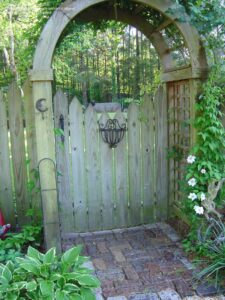
Annoying petty theft is at the top of the complaint list in every JWN neighborhood survey. From fruit stripped off backyard trees, to bikes stolen from sheds, to umbrellas swiped off front porches, to unlocked cars rifled, opportunistic theft is a plague for JWN residents. While there is little to do to deter a determined thief, most are lazy and looking for an easy score. Even the most basic steps can keep you from being victimized.
For the backyard:
- simply shutting and latching gates is a good first step.
- keep outbuildings locked.
- if you can’t keep your bike in a secure spot, lock it to a stationary object.
- for gates that you need exterior access for, install or use the lock. It does not have to be fancy. Combination locks work best.
- for gates that you do not need for exterior access, simply secure with a nut and bolt through the latch so it can’t be opened from the outside (effective, cheap, and no key to lose).
- you don’t need a heavy duty gate, just the fact that access is a challenge is enough in most cases.
While these steps can be a pain at times, it is less a hassle than getting robbed.
For thefts call the EPD non-emergency number 541-682-5111. Even if an officer can’t come out, your report creates a data point and that drives enforcement resources.
Tips on Urban Living Series #2: Someone is passed out in my yard – now what?
A neighbor recently had to deal with two people passed out in his front yard. While meme-worthy amusing in the abstract, in practice this can be frightening. My neighbor politely asked them to move, but one person jumped up rather quickly and this made for a tense moment. You never can be sure of the state of mind of someone who would wind up passed out in public. They may be inebriated or in need of medical assistance.
Call the EPD non-emergency number 541-862-5111 and the dispatcher will send out CAHOOTS.
Tips on Urban Living Series #1: I found a sharp (syringe), what now?
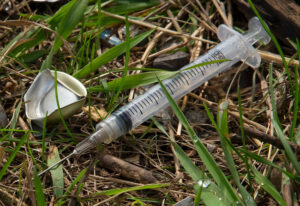 Unfortunately, people will occasionally find a syringe (aka sharp) in a park, on the street, or even in your yard. It is very important that these health and safety hazards are addressed immediately and properly. NEVER PUT A SHARP IN THE TRASH! There is a very real danger to Public Works and sanitation workers.
Unfortunately, people will occasionally find a syringe (aka sharp) in a park, on the street, or even in your yard. It is very important that these health and safety hazards are addressed immediately and properly. NEVER PUT A SHARP IN THE TRASH! There is a very real danger to Public Works and sanitation workers.
DO NOT touch it. Call the EPD non-emergency number 541-862-5111 and the dispatcher will send CAHOOTS out to pick it up. You may want to mark the location so others can avoid it. If it is on City Park property you can file a report via Park Watch. If you see EPD, CAHOOTS, or any city workers they will usually have a kit to deal with sharps.
